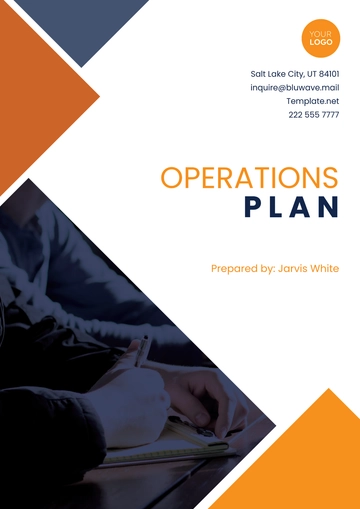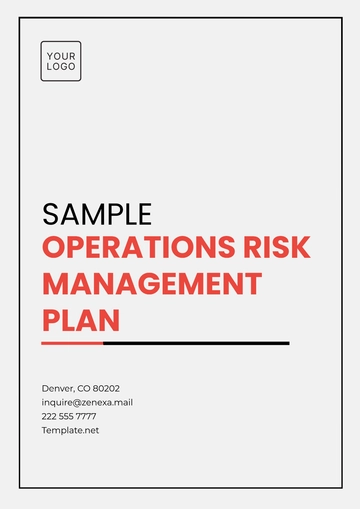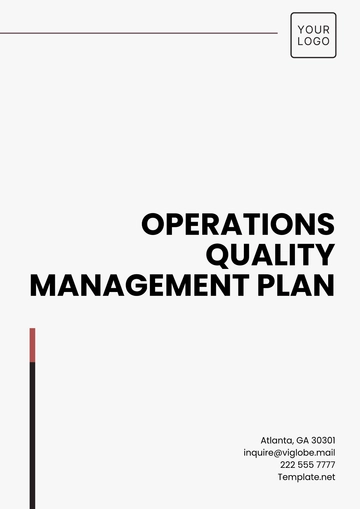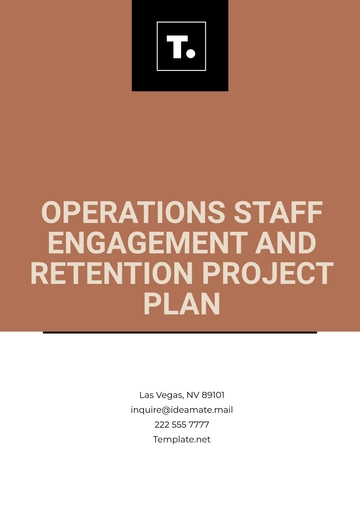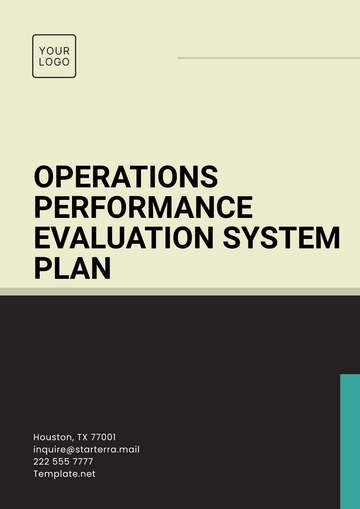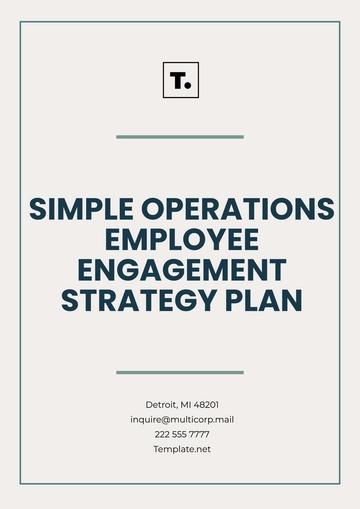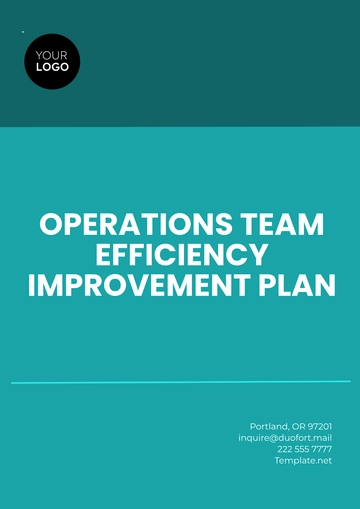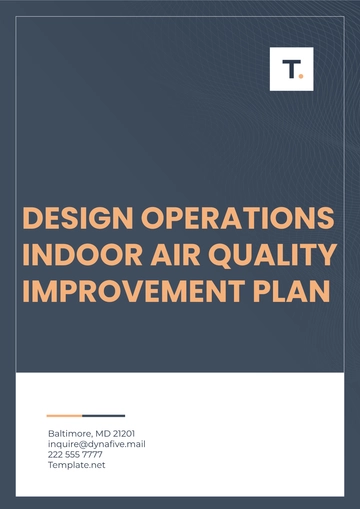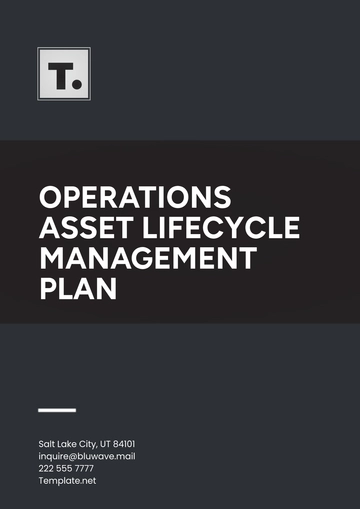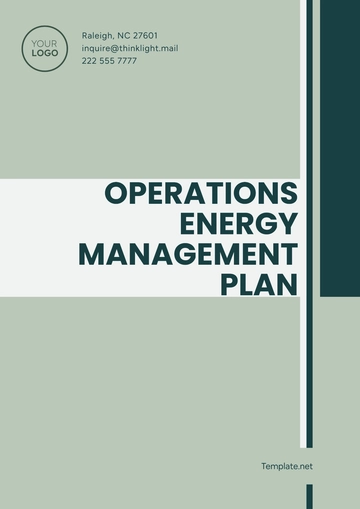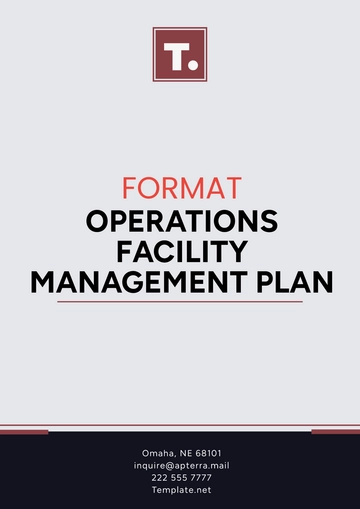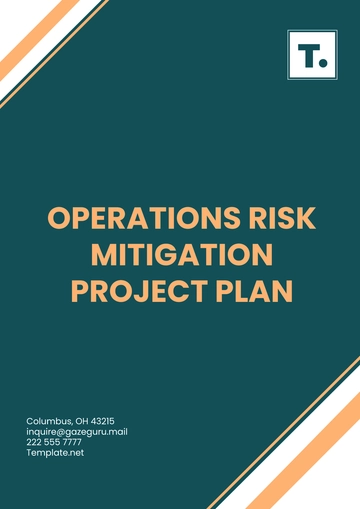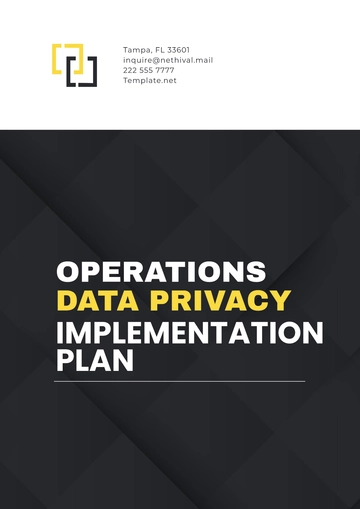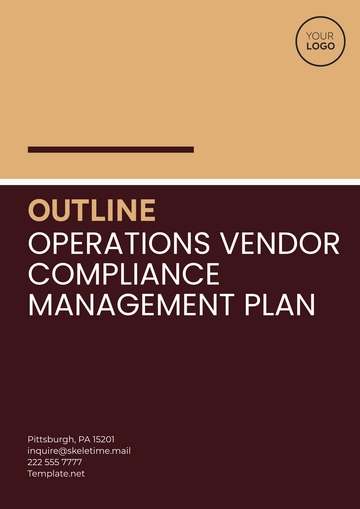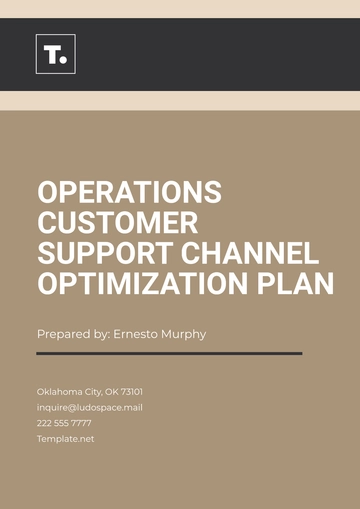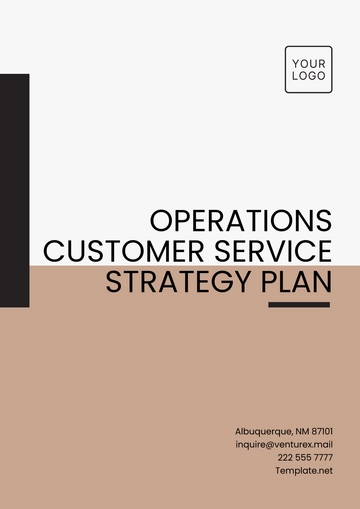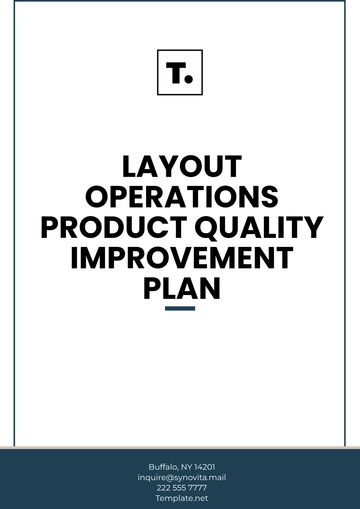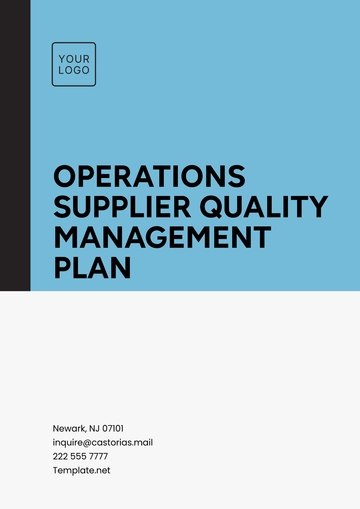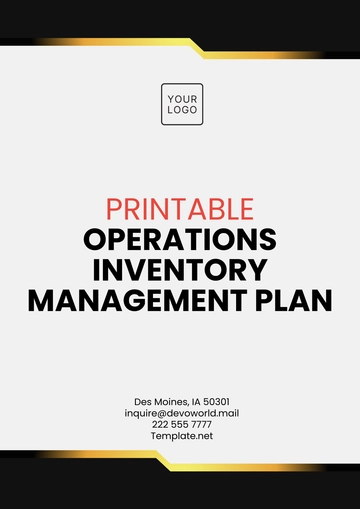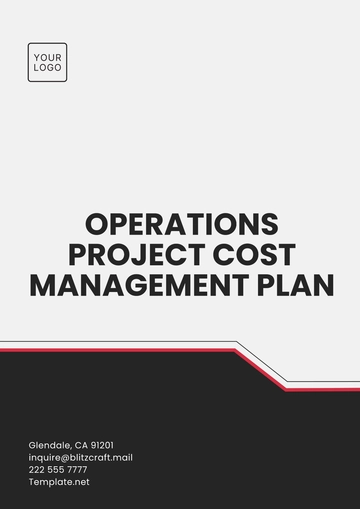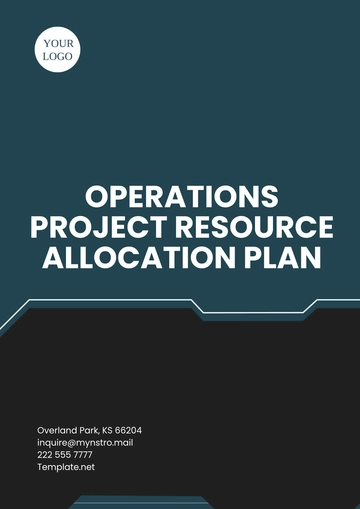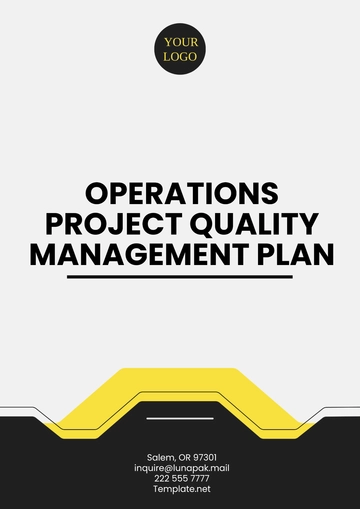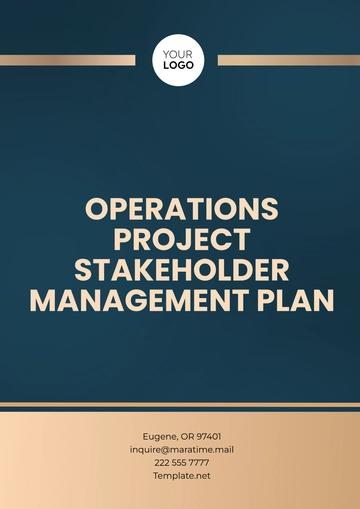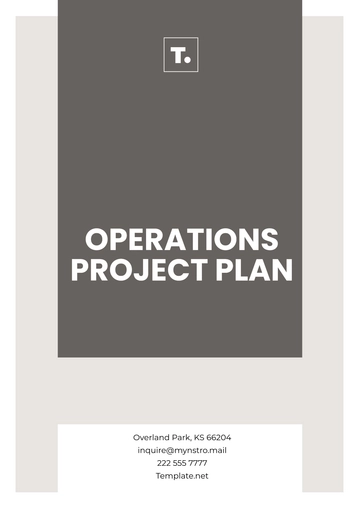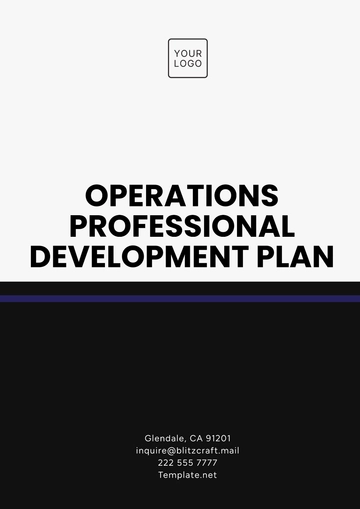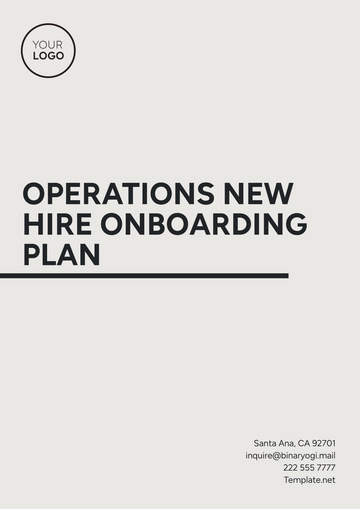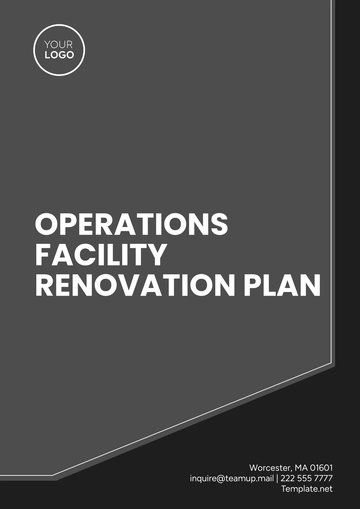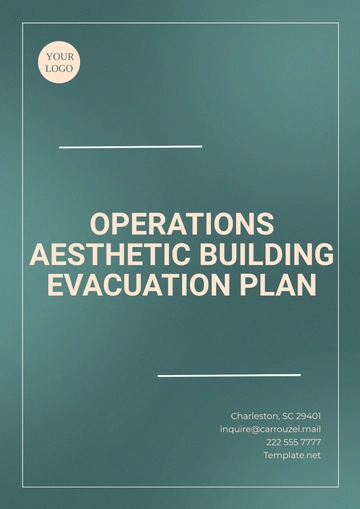Free Movie Theater Operational Plan
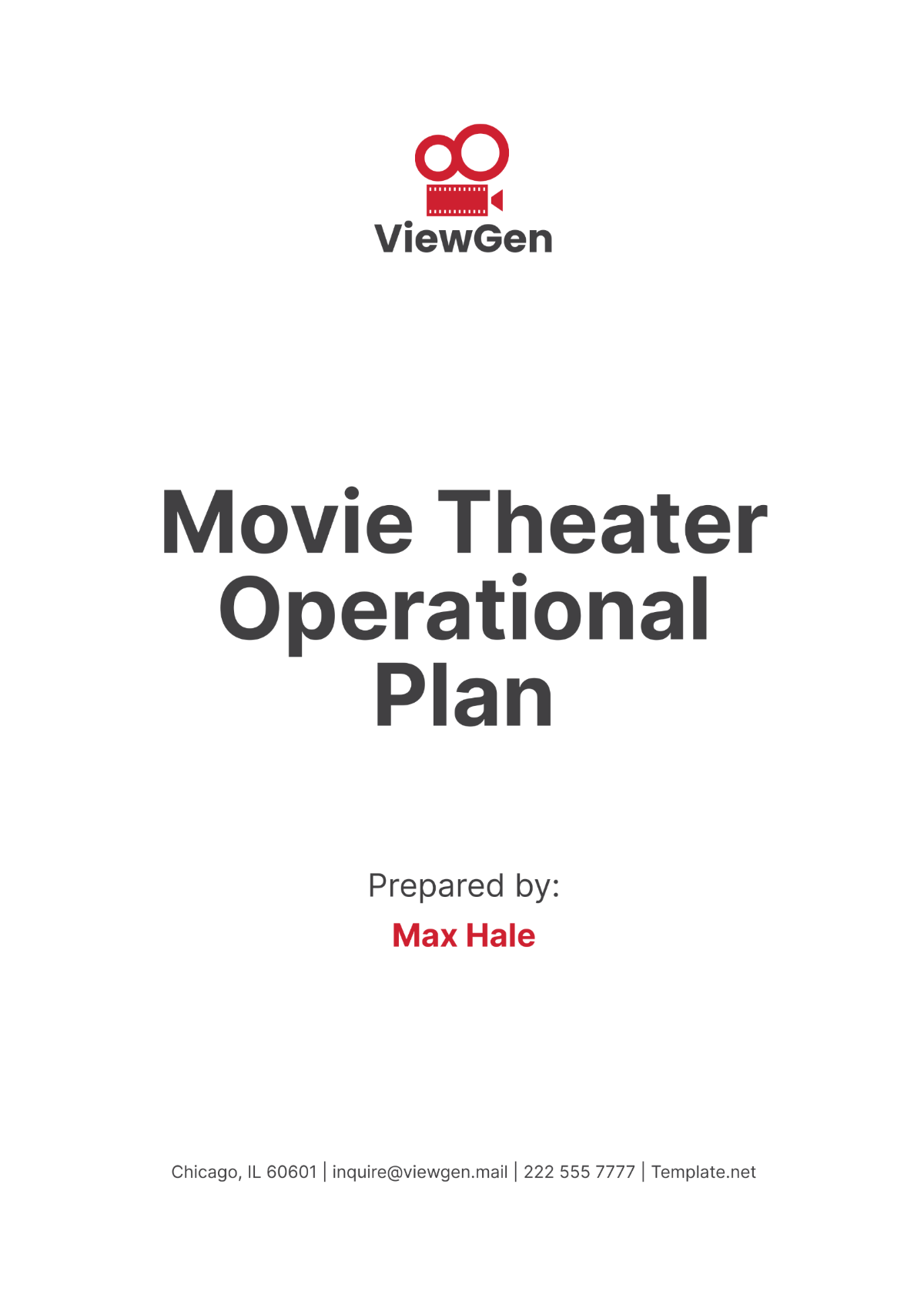
I. Introduction
This comprehensive operational plan aims to ensure the efficient and professional management of a movie theater operated by [Your Company Name]. Our goal is to provide an exceptional movie-going experience for our patrons, ensuring that every aspect of theater operations runs smoothly and efficiently. To achieve this, we have outlined detailed procedures and standards across key operational areas. This plan will serve as a guide for our staff, helping them to understand their roles and responsibilities while maintaining a high standard of service and professionalism.
The operational plan covers essential components such as staffing, scheduling, customer service, concessions, security, and maintenance. By addressing these areas, [Your Company Name] strives to create a safe, welcoming, and enjoyable environment for our guests. We emphasize the importance of teamwork, training, and adherence to industry best practices to ensure that all operations align with US laws and standards. This plan will be reviewed and updated regularly to adapt to changing circumstances and continuously improve the overall performance and customer satisfaction of our theater.
II. Staffing
Effective staffing is crucial for the smooth operation of [Your Company Name]'s movie theater. Our team members play distinct roles, each contributing to a seamless and enjoyable experience for our patrons. This section outlines the various positions within our theater, detailing their specific responsibilities and requirements. By clearly defining these roles, we ensure that each staff member understands their duties and can perform them effectively.
The following table provides an overview of key positions at [Your Company Name], including Managers, Assistant Managers, Cashiers, Ushers, and Concession Staff. Each role is accompanied by a list of responsibilities and the qualifications necessary to fulfill these duties, ensuring that our team is well-equipped to deliver exceptional service.
Position | Responsibilities | Requirements |
|---|---|---|
Manager | Oversee all operations, manage staff, handle finances | Experience in management, strong leadership skills |
Assistant Manager | Support Manager, handle customer complaints, supervise staff | Experience in supervision, customer service skills |
Cashiers | Sell tickets, process transactions | Customer service experience, basic math skills |
Ushers | Assist customers, clean theaters between showings | Customer service orientation, attention to detail |
Concession Staff | Prepare and sell food and beverages | Food handling experience, customer service skills |
III. Scheduling
Efficient scheduling is essential to ensure that [Your Company Name] operates smoothly and meets the needs of both our staff and patrons. Properly managing staff schedules helps maintain a balanced workload, ensures adequate coverage during peak times, and supports a high level of customer service. Additionally, a well-structured schedule helps prevent staff burnout and promotes a positive work environment.
The table below outlines a sample weekly schedule for our various positions, detailing shifts for Managers, Assistant Managers, Cashiers, Ushers, and Concession Staff. By following this schedule, we aim to provide consistent and reliable service throughout the week while accommodating the availability and preferences of our team members.
Position | Mon | Tues | Wed | Thurs | Fri | Sat | Sun |
|---|---|---|---|---|---|---|---|
Manager | [00:00- 00:00] | [00:00- 00:00] | [00:00- 00:00] | [00:00- 00:00] | [00:00- 00:00] | [00:00- 00:00] | [00:00- 00:00] |
Assistant Manager | [00:00- 00:00] | [00:00- 00:00] | [00:00- 00:00] | [00:00- 00:00] | [00:00- 00:00] | [00:00- 00:00] | [00:00- 00:00] |
Cashiers | [00:00- 00:00] | [00:00- 00:00] | [00:00- 00:00] | [00:00- 00:00] | [00:00- 00:00] | [00:00- 00:00] | [00:00- 00:00] |
Ushers | [00:00- 00:00] | [00:00- 00:00] | [00:00- 00:00] | [00:00- 00:00] | [00:00- 00:00] | [00:00- 00:00] | [00:00- 00:00] |
Concession Staff | [00:00- 00:00] | [00:00- 00:00] | [00:00- 00:00] | [00:00- 00:00] | [00:00- 00:00] | [00:00- 00:00] | [00:00- 00:00] |
IV. Customer Service
At [Your Company Name], exceptional customer service is central to delivering a memorable movie-going experience. Our approach to customer service involves proactive engagement, effective issue resolution, and continuous improvement based on customer feedback. This section outlines our customer service standards and practices, divided into key sub-sections to ensure comprehensive service quality.
1. Greeting and Engagement
Upon arrival, staff members should warmly greet patrons and offer assistance with ticket purchases, directions, or general inquiries. A friendly and approachable demeanor sets a positive tone for the customer's experience. Cashiers and Ushers are specifically trained to provide excellent service at the point of sale and throughout the theater. Engaging with customers in a respectful and courteous manner fosters a welcoming environment.
2. Handling Complaints and Issues
Addressing customer complaints and issues promptly and effectively is crucial. Staff members are trained to listen attentively to concerns, empathize with the customer, and offer appropriate solutions. The Assistant Manager is responsible for handling more complex or escalated complaints, ensuring they are resolved in a manner that aligns with company policies and maintains customer satisfaction. All complaints should be documented and reviewed to identify areas for improvement.
3. Ensuring Cleanliness and Comfort
Maintaining a clean and comfortable environment is essential for customer satisfaction. Ushers are responsible for regularly checking and cleaning theaters between showings, while Concession Staff ensure that the concession area is kept tidy and well-stocked. Regular inspections and prompt attention to any issues, such as spills or trash, contribute to a pleasant movie experience.
4. Collecting and Acting on Feedback
Customer feedback is invaluable for ongoing improvement. [Your Company Name] encourages patrons to provide feedback through surveys, suggestion boxes, or online platforms. All feedback is reviewed by the management team, and actionable insights are used to enhance service quality, address recurring issues, and implement new initiatives that meet customer needs and expectations.
V. Concessions
The concessions operation at [Your Company Name] is designed to enhance the movie-going experience by offering a variety of food and beverage options in a convenient and efficient manner. This section outlines our approach to managing concessions, including product offerings, food safety, and customer service standards.
1. Product Offerings
Our concession stand features a diverse range of products to cater to different tastes and preferences. The menu typically includes popcorn, candy, nachos, soft drinks, and specialty items such as hot dogs and pretzels. Seasonal promotions and limited-time offers are also incorporated to keep the menu exciting and relevant. Concession Staff are trained to efficiently prepare and serve these items while maintaining high standards of quality and presentation.
2. Food Safety and Handling
Food safety is a top priority at [Your Company Name]. Concession Staff must adhere to strict hygiene and safety protocols to prevent contamination and ensure the well-being of our patrons. This includes proper handwashing, using gloves when handling food, and maintaining clean workstations. All food items are stored at appropriate temperatures and in accordance with health department regulations. Regular training on food safety practices and periodic inspections help ensure compliance with these standards.
3. Customer Service
Exceptional customer service is key to a positive concession experience. Concession Staff are trained to interact with customers in a friendly and efficient manner, quickly addressing any questions or special requests. Staff members should be knowledgeable about the menu items and able to offer recommendations. Speed of service is crucial, especially during peak times, to minimize wait times and ensure customer satisfaction.
4. Inventory Management
Effective inventory management is essential to prevent shortages and waste. Regular stock checks and inventory audits help maintain optimal levels of products and identify any discrepancies. [Your Company Name] employs a systematic approach to ordering and restocking, ensuring that popular items are always available and that expired or damaged goods are promptly removed from inventory.
5. Maintenance and Cleanliness
The concession area must be kept clean and organized at all times. Concession Staff are responsible for regularly cleaning counters, equipment, and floors. End-of-day cleanups include thorough sanitation of all surfaces and equipment to ensure a hygienic environment for the next day’s operations. Regular maintenance checks on equipment, such as popcorn machines and soda dispensers, are conducted to prevent breakdowns and ensure consistent performance.
VI. Security
Ensuring the safety and security of patrons and staff is a fundamental priority at [Your Company Name]. A comprehensive security plan is vital for protecting our theater from various risks, including theft, vandalism, and emergencies. This section outlines our security measures and procedures, which are designed to create a safe and secure environment for everyone on the premises.
1. Surveillance and Monitoring
To maintain a secure environment, [Your Company Name] utilizes a state-of-the-art surveillance system, including security cameras strategically placed throughout the theater. These cameras monitor key areas such as entrances, exits, lobbies, concession stands, and auditoriums. The surveillance footage is continuously recorded and reviewed as needed to deter criminal activity and assist in investigations if necessary. Security personnel are trained to operate and monitor these systems effectively.
2. Access Control
Controlling access to restricted areas is crucial for maintaining security. Access to areas such as the control room, staff-only zones, and storage rooms is restricted to authorized personnel only. Access control measures include key card systems, locked doors, and security codes. All staff members are trained on the importance of securing these areas and are required to report any suspicious behavior or breaches of security.
3. Emergency Preparedness
Preparedness for emergencies is essential for protecting patrons and staff. [Your Company Name] has established detailed emergency procedures for various scenarios, including fires, medical emergencies, and natural disasters. Staff members receive regular training on these procedures, including evacuation plans, first aid, and the use of emergency equipment such as fire extinguishers. Regular drills are conducted to ensure that everyone is familiar with their roles and responsibilities during an emergency.
4. Incident Reporting and Response
Prompt and effective response to incidents is critical for minimizing their impact. All staff members are trained to report incidents, such as disturbances or suspicious activity, immediately to management or security personnel. A detailed incident report is completed for each occurrence, documenting the nature of the incident, actions taken, and any follow-up required. Management reviews these reports to identify trends and implement improvements to security protocols as needed.
5. Staff Training and Conduct
Security training for staff is an integral part of maintaining a safe environment. All employees receive training on recognizing and responding to potential security threats, handling difficult situations, and de-escalating conflicts. Emphasis is placed on maintaining a professional demeanor and effective communication skills. Regular refresher courses and workshops ensure that staff are up-to-date with the latest security practices and procedures.
6. Collaboration with Local Authorities
Maintaining strong relationships with local law enforcement and emergency services is key to effective security management. [Your Company Name] collaborates with local authorities to stay informed about potential threats and best practices for theater security. Regular meetings and communication with local police and fire departments help ensure a coordinated response in case of emergencies and facilitate quick access to additional resources if needed.
VII. Maintenance
Regular and systematic maintenance is crucial for ensuring the smooth operation and longevity of the facilities and equipment at [Your Company Name]. This section outlines our maintenance protocols, which are designed to address routine upkeep, preventive measures, and responsive repairs to maintain a high standard of safety and functionality within the theater.
1. Routine Maintenance
Routine maintenance involves regular inspections and upkeep of the theater's facilities and equipment to prevent issues before they arise. This includes daily, weekly, and monthly tasks such as cleaning, checking for wear and tear, and ensuring all systems are functioning correctly. Daily maintenance tasks include sweeping and mopping floors, cleaning restrooms, and emptying trash cans. Weekly tasks may involve cleaning carpets, checking HVAC systems, and inspecting concession equipment. Monthly inspections include evaluating lighting, seating, and audio-visual equipment. A detailed maintenance checklist ensures that all tasks are completed systematically.
2. Preventive Maintenance
Preventive maintenance aims to address potential issues before they develop into major problems. This involves scheduled servicing of equipment and systems according to manufacturer recommendations or industry best practices. For instance, HVAC systems are serviced biannually to ensure efficient operation and air quality. Regular calibration of projection and sound systems ensures optimal performance. Additionally, preventative measures include inspecting fire safety equipment, such as alarms and extinguishers, to ensure they are fully operational. Documentation of preventive maintenance activities helps track performance and schedule future servicing.
3. Responsive Repairs
Responsive repairs address unexpected issues or malfunctions that occur between scheduled maintenance. Staff members are trained to identify and report any problems immediately, from broken seats to malfunctioning concession equipment. Upon receiving a repair request, the maintenance team evaluates the issue and performs the necessary repairs promptly. Emergency repairs, such as those involving safety systems or major equipment failures, are prioritized to minimize disruption and ensure safety. A repair log tracks all incidents, including the nature of the problem, actions taken, and resolution times.
4. Facility Upgrades
Periodic facility upgrades are essential to keep the theater modern and aligned with industry standards. Upgrades may include renovating seating areas, enhancing audio-visual technology, or improving accessibility features. [Your Company Name] conducts assessments to identify areas for improvement and invests in upgrades that enhance the overall patron experience and operational efficiency. Planning and budgeting for these upgrades are part of our long-term maintenance strategy, ensuring that improvements are implemented strategically and cost-effectively.
5. Compliance and Safety
All maintenance activities must comply with local building codes, health regulations, and safety standards. [Your Company Name] ensures that all maintenance work is performed by qualified professionals and adheres to regulatory requirements. Regular inspections by external auditors or regulatory bodies help confirm compliance and identify areas where improvements may be necessary. Maintaining compliance not only ensures the safety and well-being of patrons and staff but also supports the theater's operational integrity and reputation.
VIII. Conclusion
Implementing this operational plan is essential for ensuring the efficient and smooth operation of [Your Company Name]'s movie theater. By adhering to the guidelines set forth in this document, we aim to enhance the overall customer experience, optimize staff performance, and drive profitability. The plan addresses critical areas including staffing, scheduling, customer service, concessions, security, and maintenance, providing a comprehensive framework to support daily operations and long-term success.
To maintain the effectiveness and relevance of this plan, it is crucial to conduct regular reviews and updates. As the needs of the theater and the expectations of our patrons evolve, the operational plan must adapt accordingly. Continuous feedback from staff and customers, along with industry best practices, will inform necessary adjustments and improvements. By staying proactive and responsive to changes, [Your Company Name] will continue to provide exceptional service and achieve sustained success in the competitive movie theater market.
- 100% Customizable, free editor
- Access 1 Million+ Templates, photo’s & graphics
- Download or share as a template
- Click and replace photos, graphics, text, backgrounds
- Resize, crop, AI write & more
- Access advanced editor
Discover the perfect Movie Theater Operational Plan Template on Template.net. This fully customizable and editable template ensures seamless planning. Easily editable in our Ai Editor Tool, it allows you to tailor every detail to your specific needs, enhancing efficiency and organization for your movie theater operations.
You may also like
- Finance Plan
- Construction Plan
- Sales Plan
- Development Plan
- Career Plan
- Budget Plan
- HR Plan
- Education Plan
- Transition Plan
- Work Plan
- Training Plan
- Communication Plan
- Operation Plan
- Health And Safety Plan
- Strategy Plan
- Professional Development Plan
- Advertising Plan
- Risk Management Plan
- Restaurant Plan
- School Plan
- Nursing Home Patient Care Plan
- Nursing Care Plan
- Plan Event
- Startup Plan
- Social Media Plan
- Staffing Plan
- Annual Plan
- Content Plan
- Payment Plan
- Implementation Plan
- Hotel Plan
- Workout Plan
- Accounting Plan
- Campaign Plan
- Essay Plan
- 30 60 90 Day Plan
- Research Plan
- Recruitment Plan
- 90 Day Plan
- Quarterly Plan
- Emergency Plan
- 5 Year Plan
- Gym Plan
- Personal Plan
- IT and Software Plan
- Treatment Plan
- Real Estate Plan
- Law Firm Plan
- Healthcare Plan
- Improvement Plan
- Media Plan
- 5 Year Business Plan
- Learning Plan
- Marketing Campaign Plan
- Travel Agency Plan
- Cleaning Services Plan
- Interior Design Plan
- Performance Plan
- PR Plan
- Birth Plan
- Life Plan
- SEO Plan
- Disaster Recovery Plan
- Continuity Plan
- Launch Plan
- Legal Plan
- Behavior Plan
- Performance Improvement Plan
- Salon Plan
- Security Plan
- Security Management Plan
- Employee Development Plan
- Quality Plan
- Service Improvement Plan
- Growth Plan
- Incident Response Plan
- Basketball Plan
- Emergency Action Plan
- Product Launch Plan
- Spa Plan
- Employee Training Plan
- Data Analysis Plan
- Employee Action Plan
- Territory Plan
- Audit Plan
- Classroom Plan
- Activity Plan
- Parenting Plan
- Care Plan
- Project Execution Plan
- Exercise Plan
- Internship Plan
- Software Development Plan
- Continuous Improvement Plan
- Leave Plan
- 90 Day Sales Plan
- Advertising Agency Plan
- Employee Transition Plan
- Smart Action Plan
- Workplace Safety Plan
- Behavior Change Plan
- Contingency Plan
- Continuity of Operations Plan
- Health Plan
- Quality Control Plan
- Self Plan
- Sports Development Plan
- Change Management Plan
- Ecommerce Plan
- Personal Financial Plan
- Process Improvement Plan
- 30-60-90 Day Sales Plan
- Crisis Management Plan
- Engagement Plan
- Execution Plan
- Pandemic Plan
- Quality Assurance Plan
- Service Continuity Plan
- Agile Project Plan
- Fundraising Plan
- Job Transition Plan
- Asset Maintenance Plan
- Maintenance Plan
- Software Test Plan
- Staff Training and Development Plan
- 3 Year Plan
- Brand Activation Plan
- Release Plan
- Resource Plan
- Risk Mitigation Plan
- Teacher Plan
- 30 60 90 Day Plan for New Manager
- Food Safety Plan
- Food Truck Plan
- Hiring Plan
- Quality Management Plan
- Wellness Plan
- Behavior Intervention Plan
- Bonus Plan
- Investment Plan
- Maternity Leave Plan
- Pandemic Response Plan
- Succession Planning
- Coaching Plan
- Configuration Management Plan
- Remote Work Plan
- Self Care Plan
- Teaching Plan
- 100-Day Plan
- HACCP Plan
- Student Plan
- Sustainability Plan
- 30 60 90 Day Plan for Interview
- Access Plan
- Site Specific Safety Plan
